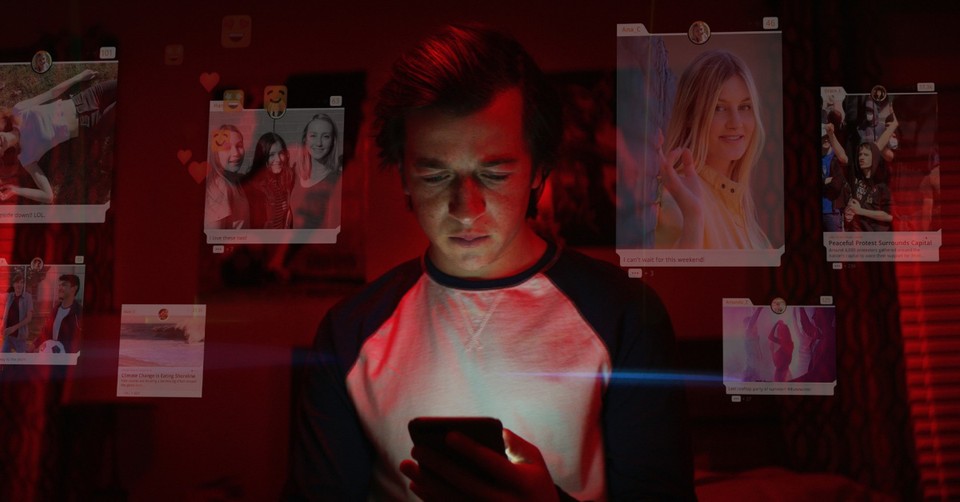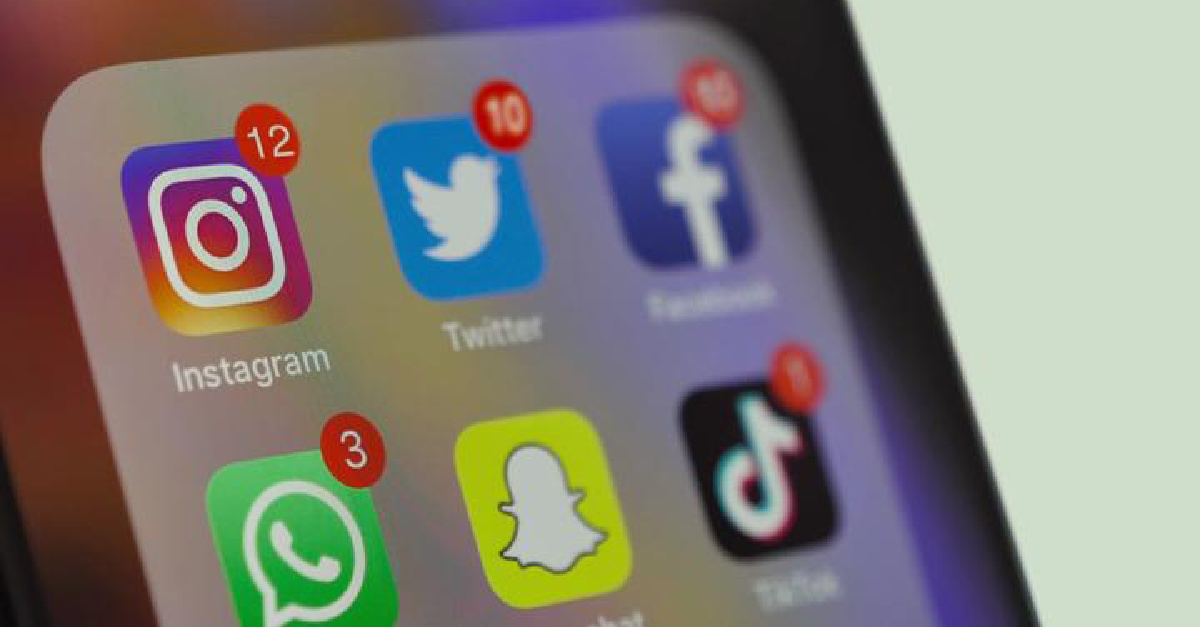3 Scary Lessons for Parents from Netflix's The Social Dilemma

A 2019 Common Sense Media survey revealed that the average teen who uses social media began doing so at age 14, with one-fourth starting at age 12 or younger.
And most teens – 63 percent – say they use social media every day.
Maybe that’s not so bad. Then again, maybe their parents would have made a different decision had they first watched Netflix’s new documentary, The Social Dilemma.
The 90-minute film is a must-watch for not only parents and teens but also for anyone who has picked up a smartphone intending to spend only a few minutes on it but ended up wasting an afternoon.
Using a mixture of drama and analysis, The Social Dilemma includes interviews with former employees of Google, Twitter, Facebook, Pinterest and Instagram, among others. Their conclusion is simple: Social media is ruining lives and changing society for the worse.
It might be the most important documentary of the year – if not the best one, too.
For parents, it’s a wake-up call to be more involved in your child’s smartphone habits … or perhaps to hold off on that smartphone purchase a bit longer.
Here are three scary lessons for parents from The Social Dilemma:
Photo courtesy: ©Netflix

1. Social Media Is Designed to Be Addictive
Any parent who has tried to pry their teen or tween from a smartphone knows it’s addictive. At best, you get a reply of “just a minute.” At worst, you’re completely ignored because your child is lost in another world. Of course, adults aren’t immune to this addition, either.
In Social Dilemma, former employees of tech giants explain how social media is designed to keep you online as much as possible. These companies need you to stay online because they are for-profit corporations in the business of making money – and you are the product they are selling to advertisers.
Thus, the social media companies learn what you like to watch and read about, and they give you more of it. Each time you refresh the page, it gives you something new to enjoy. It’s like a slot machine in your pocket that gives you just enough to keep your attention – but never enough to force you to walk away.
“A lot of people think, ‘Oh, well, Google’s just a search box, and Facebook’s just a place to see what my friends are doing and see their photos,” former Google employee Tristan Harris says.
But users don’t realize that the companies – Facebook, Instagram, YouTube and others -- are “competing for your attention,” Harris adds.
“Their business model is to keep people engaged on the screen,” says Tim Kendall, former president of Pinterest.
To put it another way, they want you to trade your time with your family and friends – not to mention your time reading a book or walking through the woods – for time on social media. They want you to forget how to live life.
“Let’s figure out how to get as much of this person’s attention as we possibly can,” Kendall says, summarizing the goal.
Many of the former employees featured in Social Dilemma don’t allow their children to have social media accounts. All of them say they turn off notifications on their own phones.
Corporations, we learn, are “using powerful artificial intelligence to outsmart us and figure out how to pull our attention toward the things they want us to look at.”
2. Social Media Makes it Difficult to Distinguish Truth from Lies
Have you ever wondered why someone from a different viewpoint believes what they believe? Perhaps you even thought they were … stupid.
Perhaps they believe what they believe because they’re seeing information and news stories you never see – and vice versa. Their Google search results are different from your results. Their Facebook ads are different, too. Facebook recommends to them – and to you – friends who are like-minded.
Your timeline is filled only with what you believe. So, if you’re a conservative, you only see conservative recommendations … and you never have to deal with those “pesky” liberals. You live in a bubble. The liberals do, too. Neither side believes anything said by the other. And no one knows what’s true.
Can you picture the U.S. being formed in 1776 under such a structure?
“Imagine a world where no one believes anything is true. Everyone believes the government’s lying to them. Everything is a conspiracy theory. ‘I shouldn’t trust anyone. I hate the other side.’ That’s where all this is heading,” Harris says. “... We in the tech industry have created the tools to destabilize and erode the fabric of society in every country, all at once.”
Sadly, it’s only getting worse. The social media algorithms can’t distinguish truth from lies. The algorithms can’t spot a conspiracy theory. The algorithm’s sole job is to increase engagement.
One study found that false stories travel six times faster on Twitter than true ones.
If we “can’t agree on what’s true, then we can’t navigate out of any of our problems,” Harris says.
3. Suicides and Self-Harm Have Increased under Social Media’s Rise
Social media is more than simply addictive. It also can be dangerous. Social psychologist Jonathan Haidt reveals that hospital admissions for non-fatal self-harm among girls have increased dramatically since the rise of social media – up 189 percent among girls ages 10-14 and up 62 percent among those ages 15-19. Suicides among teen girls have increased, too – up 151 percent among girls ages 10-14 and 70 percent among those ages 15-19. The increase began when social media became available on mobile devices.
Teens are buying the lie that self-worth is found in popularity. They’re chasing unrealistic – and false – standards of beauty.
“There has been a gigantic increase in depressions and anxiety for American teenagers,” Haidt said.
Generation Z, Haidt says, is the first generation in history “that got on social media in middle school.”
“A whole generation is more anxious, more fragile, more depressed,” he says.
The Social Dilemma is rated PG-13 for some thematic elements, disturbing/violent images and suggestive material. Language is minimal but includes s--t (1), misuse of “God” (1), d--n (1).
Entertainment rating: 5 out of 5 stars.
Family-friendly rating: 4 out of 5 stars.
Photo courtesy: ©Netflix
Michael Foust has covered the intersection of faith and news for 20 years. His stories have appeared in Baptist Press, Christianity Today, The Christian Post, the Leaf-Chronicle, the Toronto Star and the Knoxville News-Sentinel.
Listen to Michael's Podcast! He is the host of Crosswalk Talk, a podcast where he talks with Christian movie stars, musicians, directors, and more. Hear how famous Christian figures keep their faith a priority in Hollywood and discover the best Christian movies, books, television, and other entertainment. You can find Crosswalk Talk on LifeAudio.com, or subscribe on Apple or Spotify so you never miss an interview that will be sure to encourage your faith.
Originally published September 30, 2020.





